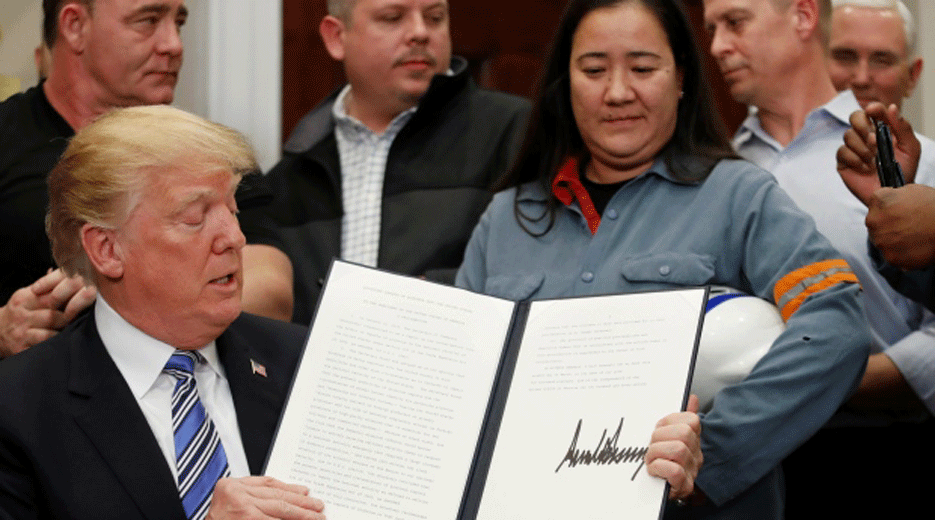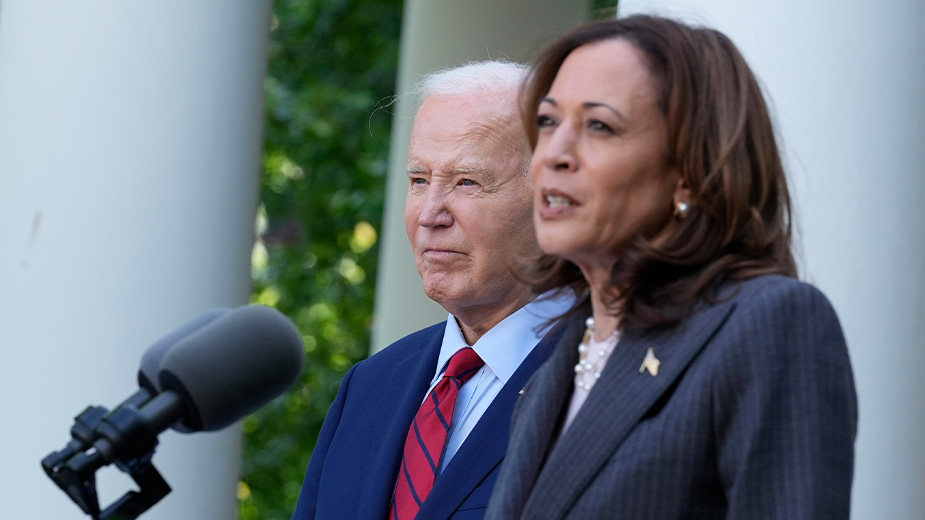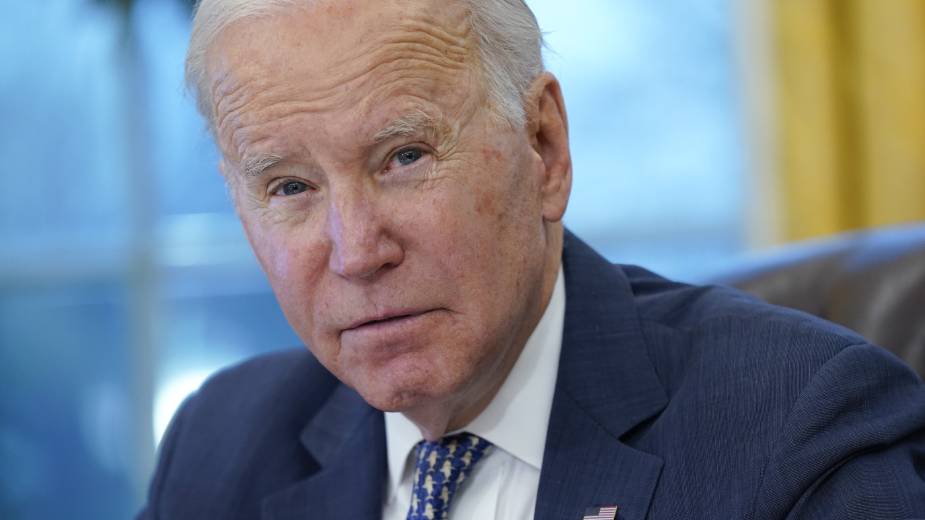Trump Leaves Open Exemptions on Tariffs
YOUNGSTOWN, Ohio – President Donald J. Trump signed proclamations Thursday that would impose global tariffs on imported aluminum and steel, but would initially exempt Canada and Mexico from such duties.
The tariffs would take effect in at least 15 days, Trump said during a signing ceremony at the White House.
Meanwhile, the U.S. would assess the state of negotiations with Mexico and Canada as the countries rework the North American Free Trade Agreement, or NAFTA. Should a deal be reached, there would be no need to impose tariffs on the two countries, he said.
“I have a feeling we’re going to make a deal on Nafta,” Trump said. However, should a deal falter, then the president vowed to terminate the agreement and “start all over again.” There was no deadline presented for reaching a deal on NAFTA.
When the tariffs were first announced March 1, Trump offered no indication that any exemptions would be attached. However, he’s since softened his stance on which countries should be targeted.
Earlier in the day, for example, Trump noted that Australia could be excluded from duty penalties because of their close relationship with the United States and is one country in which the U.S. enjoys a trade surplus.
Trump said during the ceremony that American jobs and families have been devastated by unbalanced trade policies that have led to the flood of low-priced foreign steel and aluminum entering the United States from countries such as China. As such, the cheap steel forced large operations to shut down across the country.
He said “millions” of workers have lost their jobs over several decades because of unfair trade perpetrated by China and other nations.
However, the president did say that his administration would use the 15-day period to examine whether countries have acted as responsible trading and military partners with the U.S., leaving the door open for additional exemptions.
Those countries that have trade and security interests with the U.S. are welcome to hold talks with the administration and negotiate alternatives to the trade penalties, Trump noted.
“We subsidize many rich countries with our military,” Trump said, noting these nations pay far below face value for U.S. support and equipment. “They’re massively wealthy countries, so we have to stop that. That will enter into the equation also.”
The proclamations signed Thursday assess a 25% tariff on imported steel and a 10% tariff on imported aluminum.
U.S. Sen. Sherrod Brown, D-Ohio, a longtime critic of past trade policy and advocate for trade reform, welcomed Trump’s actions.
“For far too long, Chinese cheating has shuttered steel plants across our state and put Ohioans out of work,” Brown said in a statement. “Today’s action finally sends a clear message to our trading partners that we aren’t going to allow we aren’t going to allow then to cheat Americans out of their jobs and infect global markets. By standing up for steel jobs today, we’re also protecting America jobs up the supply chain from becoming the next victims of Chinese cheating.”
U.S. Rep. Tim Ryan, D-13, has said he was generally supportive of Trump’s position and earlier advocated carve out provisions for countries such as Canada.
Said U.S. Rep. Bill Johnson, R-6, in a statement: “I was pleased that President Trump listened to my concerns, and the concerns of many of my colleagues, in providing flexibility to America’s friends and allies who want to do business here fairly. While we need to protect domestic production of critical resources like steel and aluminum, it is also important that foreign investment in the U.S., including important job-creating projects in our region, continue to move forward. I will be following the implementation details of the president’s proposal very closely.”
Trump’s proclamations drew the most criticism from other members of the Republican Party, who view the action as the first salvo in a damaging global trade war.
House Speaker Paul Ryan, a Wisconsin Republican, said in a statement that while he welcomed exemptions for U.S. allies, the policy should be limited to those countries that violate trade law, adding that he feared “unintended consequences.”
While the tariffs might be good for steel and aluminum producers, they are likely to hurt companies that purchase steel to manufacture goods such as automobiles, since the cost of the metals will rise.
Major producers such as General Motors Co. and Ford Motor Co. would be impacted, as would beverage and beer companies that depend on high volumes of aluminum to manufacture cans.
Some American farming organizations have raised concerns, since many depend on exports to countries such as China. The fear is that countries will retaliate with stiff trade penalties, making it hard to sell products such as grain and soybeans overseas.
Arizona Republican Sen. John McCain said in a statement that the tariffs would only serve to “harm the American economy” while jeopardizing “the credibility of American leadership.”
And U.S. Sen. Jeff Flake, R-Ariz., a vocal critic of the president, has vowed to introduce legislation that would nullify Trump’s tariffs.
The construction industry could be one of the sectors of the economy hit the hardest, according to Stephen E. Sandherr, CEO of the Associated General Contractors of America.
“These new tariffs will cause significant harm to the nation’s construction industry, put tens of thousands of high-paying construction jobs at risk, undermine the president’s proposed infrastructure initiative, and potentially dampen demand for new construction projects for years to come,” Sandherr said in a statement.
Under the new tariffs, contractors would have to pay higher prices for materials, even though many are locked into contracts in advance. Thus, it makes it more difficult to absorb higher costs, Sandherr said.
He cited a recent study that showed the tariffs could cost the construction industry 30,000 jobs.
“The likely trade war these new tariffs prompt will diminish demand for private investment in infrastructure as well as construction demand for manufacturing, shipping and distribution facilities,” he said.
Pictured: President Donald Trump holds the tariff proclamation he signed Thursday.
Copyright 2024 The Business Journal, Youngstown, Ohio.



